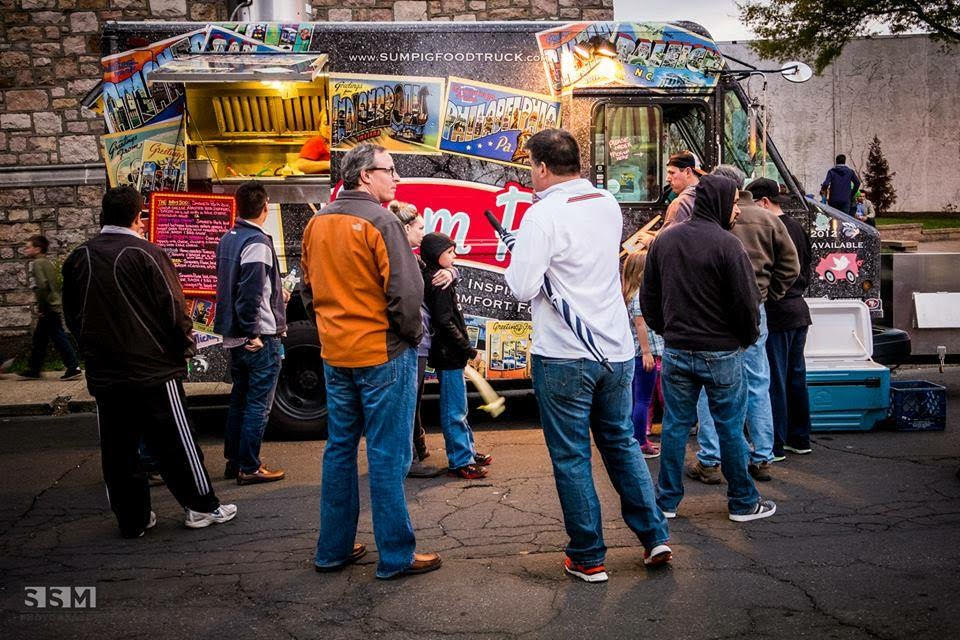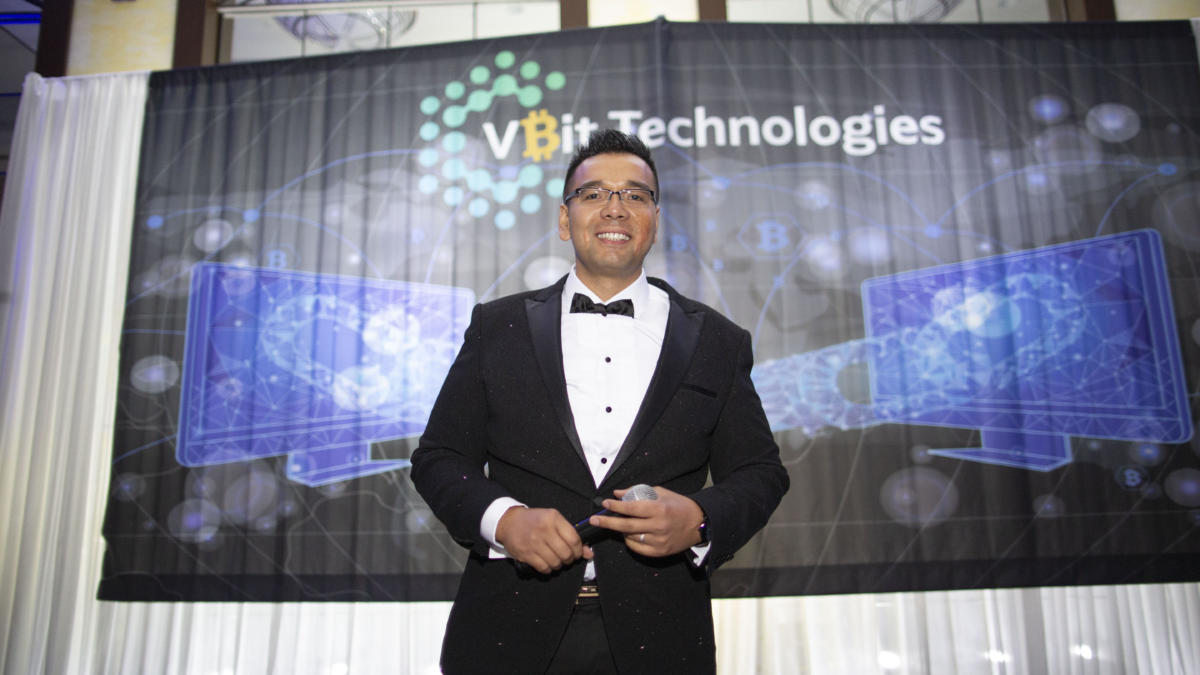Don Vo is betting big on the future of Philadelphia – but right now, he’s in Montana.
The 34-year-old CEO of VBit Technologies sounds laser-focused over the phone, speaking with a calculation that tends to come when you helm a multi-million dollar tech company.
Vo’s in the midst of opening his third Bitcoin mining center, a collection of humming computer servers tucked away remotely under the big sky of the American West. Energy is cheaper there than in Philly, where VBit is headquartered. While located some 2,000 miles away, it’s fitting that the new data center found its home in Montana – coined “The Treasure State” during the gold rush – as treasure is what Vo is seeking.
Just replace gold with Bitcoin.
“I want to see Philadelphia grow as a technology hub. I do see a lot more growth that will be going into the Bitcoin industry,” Vo said.
“I think that we have the right talent pool. We just need companies to come in and start to develop that side of the city.”
VBit Technologies specializes in Bitcoin mining. Bitcoin has made headlines for the better half of the last decade, but mentioning it among friends might get you some confused looks – perhaps a mention of Elon Musk. But for entrepreneurs and investors like Vo, mass adoption of the entirely digital cryptocurrency isn’t a matter of if, but when.
“We’re growing exponentially,” adds Vo.
A variety of purchases can be made with Bitcoin, and every day more merchants hop on board. Clothing stores, video game developers, restaurants, casinos and more have all begun to accept Bitcoin in recent years. In 2017, the first home was purchased in England entirely with Bitcoin. In February, Musk himself announced his Tesla electric cars could be purchased in the currency, shortly after Visa and Mastercard said they would begin processing Bitcoin transactions.

In Philadelphia, the Bitcoin frenzy has begun to build steam. RushOrderTees, a NE Philly-based custom apparel company and official partner of the 76ers, recently announced that they’re converting $1 million of their cash reserves into Bitcoin and other cryptocurrencies.
Down the river in Fishtown, the Philadelphia Brewing Company recently announced they’ll accept Bitcoin, potentially changing the game for bars and small businesses who worry about the high cost of credit card transaction fees – usually 2 to 3 percent. Sum Pig Food Truck in Fort Washington will also take your Bitcoin in exchange for their colossal BBQ sandwiches and root beer floats.
Perhaps most telling of cryptocurrency’s future in Philadelphia are the Bitcoin ATMs popping up around the city. Athena Bitcoin ATM is located a few blocks from Philadelphia Brewing Company on Frankford Avenue, and Germantown, Port Richmond, and Wharton have ATMs of their own.
Bitcoin is decentralized – there’s no one entity that owns or controls it – and because of this, there needs to be a computer processing power to keep track of its transactions. This process is called Bitcoin mining, and it’s done on the computer servers that VBit Technologies maintains at their Montana facility. The way Bitcoin was designed, the person managing the mining server is rewarded for their maintenance by receiving transaction fees, plus their very own Bitcoins. In short, maintaining a server keeps Bitcoin running, while also turning a profit for the owner.
“It’s kind of like a credit card terminal,” Vo says.
“You go into a store and you buy your coffee and use your credit card, you swipe on the terminal, that terminal is taking the purchase amount from your account and putting it in the merchant account. In turn, the credit card company gets paid a transaction fee for providing that terminal.”
In Bitcoin mining, the miner becomes the terminal.
If it all sounds a bit confusing, you’re not alone. That’s why Vo started VBit, to help the average person get in on the Bitcoin mining frenzy. VBit customers purchase a server from the company, which VBit maintains for them at one of their data centers while returning the profits.
Vo’s business model is unique, and makes him a Bitcoin Robinhood of sorts. Big investors are currently dumping millions into bitcoin mining, leaving the factories that make servers overloaded. The chances that an individual secures a server are increasingly rare.
“What Don’s doing is helping disrupt that space by giving the individual investor, the everyday guy, a shot at participating in what’s essentially a gold rush,” says Arland Whitfield, industry expert and CEO of Frontier Mining. Whitfield and Vo met three years ago when their start-ups were just taking off.
“He has the buying power to go toe-to-toe with the big guys, and provide a service to the little guy.”
Vo first planted his flag in Philly in 2018, opening VBit Technologies inside a brick-style office building at 17th and Washington Avenue – just a few blocks off Broad Street. He’d recently graduated from Temple University with a dual degree in accounting and finance, and had settled down with his wife, Katie.
With a headquarters secured and a family on the way, Vo’s company began to grow. VBit’s team has expanded to 19 employees, a tight-knit crew who frequent the Thai restaurants scattered across South Philadelphia for lunches and happy hours.
In Philly, Vo had found a home.
As a child of immigrants, Vo’s upbringing mirrors the path of the countless dreamers who relocate to America seeking a brighter future. In the early ‘90s, his parents migrated from Vietnam to Florida, though the family eventually ended up in New York City living in a racially mixed Bronx housing project.
To make ends meet, Vo and his older sister had to step in and work alongside their parents when Vo was just 4 years old. Every week, a broker would drop off textile fabrics at their apartment, where the family would spin them into tee shirts, scrunchies, and other apparel that was then resold.
A dozen T-shirts earned them 25 to 30 cents. For a child – or anyone, for that matter – it was grueling work.
“I had a bit of a tough childhood,” reflects Vo.
“It was kind of similar to a sweatshop you would find in Asia.”
When Vo was 13 years old, his parents were eventually able to buy him his first computer after years of saving. Like most computers in the Y2K era, it was slow and expensive, with a hefty $3,000 price tag.
But the purchase changed Vo’s life, kickstarting his interest in technology as the U.S. rode the dotcom boom of the late ‘90s.
“From there, I was a curious type of kid,” says Vo.
“I took it apart. I put it back together. I learned how to program it through reading books and researching on the internet at our public library.”
As the country’s appetite for personal computers grew, the timing was right for Vo’s interest to extend beyond a hobby and become a full-fledged personal business. Through newfound access to the internet, Vo discovered a wholesaler website in China that sold individual computer parts. He began to purchase these parts and assemble his own fully-formed computers, which he then sold online to buyers for much less than what retailers like Best Buy and RadioShack were charging.
“I was able to get people computers cheaper, and without any start-up capital,” reflects Vo. “Luckily for me, the timing was right. Most households didn’t have a computer yet.”
By the age of 15, Vo and his best-friend-turned-business-partner had enlisted eight others to help them assemble their computers and sell them at a profit.
But now that I look back, it’s kind of a double-edged sword. At that time, when I made so much money and I was young, it kind of made my ego bigger than it should have been. And with that money, I kind of made all the wrong mistakes, too.
– Don Vo
That’s when his life really began to change.
According to Vo, he exited the business that same year after his operation was bought for $1.6 million by Rubinstein Electronics Inc.
“It was overwhelming, and for better or worse, it gave me a different perspective on life,” he says.
“But now that I look back, it’s kind of a double-edged sword. At that time, when I made so much money and I was young, it kind of made my ego bigger than it should have been. And with that money, I kind of made all the wrong mistakes, too.”
On Vo’s public Facebook page, he’s not shy to mention the struggles that come with striking economic success at such a young age. His bio reads: “An entrepreneur who understands the struggles of life and has faced the ups and downs of entrepreneurship. Self made millionaire who lost it all and became a self made millionaire again.”
“When I look back on that time period though, it turned out to be a blessing as well,” says Vo, “because I was able to learn so many different lessons that I apply today to make wiser decisions.”

“I’ve heard that story from Don,” says Arland Whitman when PW mentioned Vo’s non-linear career path.
“He sure picked one hell of an industry to bet in again. We’re talking about one of the most volatile markets in the world. And the idea that he, after losing all that money, didn’t go and play it safe. I think he has a big vision, and playing it safe was never his thing. It’s a testament to saying that he made millions, he lost it all, and he’s willing to do it all over again. I think that says a lot about his character. He’s not gonna give up, but keep going.”
As Vo matured, his focus shifted toward school and his growing family. But an entrepreneur at heart, it wasn’t long before his next project sprung up.
Around 2009, Bitcoin’s creation began to stir up rumors across the internet. At the time, Vo’s wife, Katie, was working at the foreign currency exchange inside Philadelphia International Airport. Working around all that money, it was only a matter of time before she caught wind of the hype surrounding the budding currency. When Katie got home from work, she told Vo he should look it up.
Vo did his research, pouring over the whitepaper roadmap released by Bitcoin’s creator which details how the currency functions. He was skeptical. When Katie suggested he invest a couple hundred dollars anyways, Vo passed.
“I didn’t feel like there was a good chance that Bitcoin was going to take off, so I passed on that opportunity. And I’m actually kicking myself right now, because every single day my wife is reminding me about it,” laughs Vo.
Had he invested then, his $200 of Bitcoin would be worth around $10 million today.
Three days after PW’s conversation with Vo, he’s heading from the frigid plains of Montana back to an equally frigid Philadelphia. Like much of the world, he’s working from home until the coronavirus pandemic begins to subside, plotting VBit’s future from his laptop and cellphone.
When Vo started VBit, he knew that mining was never going to be the company’s only offering. That’s why he’s currently finalizing plans to roll out a VBit virtual wallet, which would allow customers to store, spend, and protect their Bitcoin balance.
And while Vo sees mass Bitcoin adoption as something at least five years off, his plan to marry Philadelphia with Bitcoin is coming much sooner than that. He’s spent the year recruiting merchants across the city to accept Bitcoin transactions, and has an idea that will make the digital currency feel much more physical.
Vo’s voice grows excited as he details his plan to open a VBit Cafe in Center City, a similar concept to the Capitol One Cafe on 17th and Walnut Street. Aiming for a late 2021 opening, Vo envisions the cafe as a place where Philadelphian’s can sip coffee, do work, and learn more about digital currency from VBit-friendly staff members.
And yes, you’ll be able to pay in Bitcoin.






